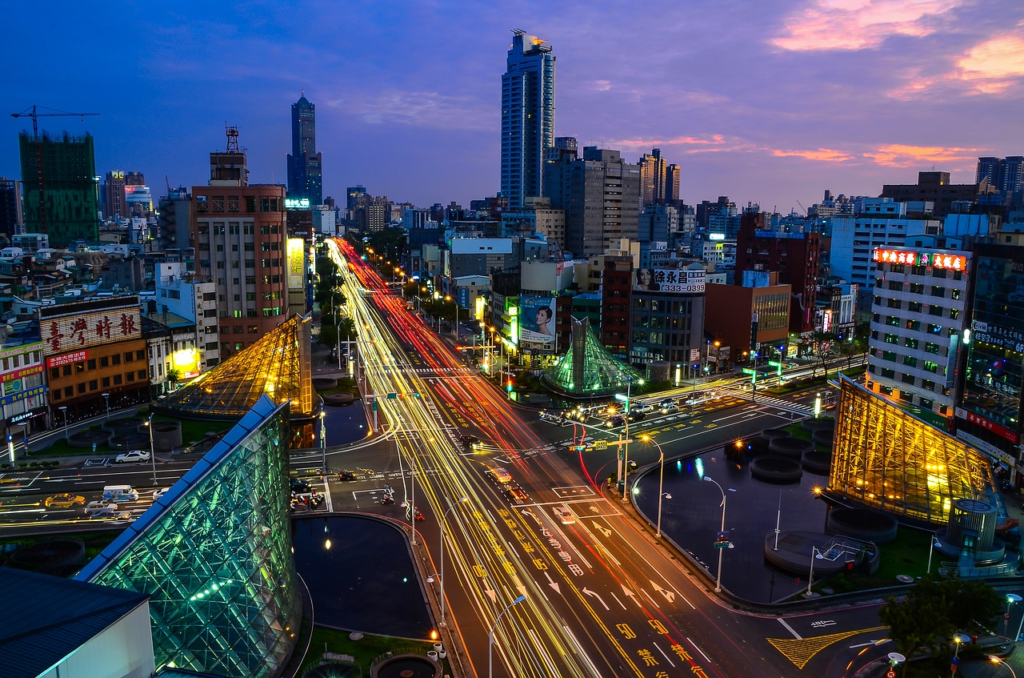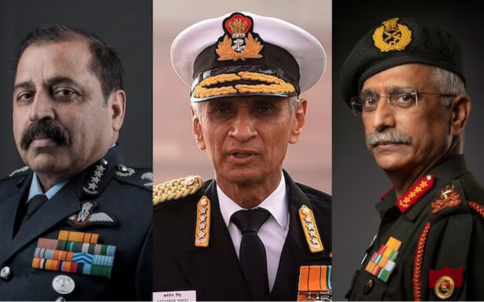Phto writeup: The three Indian former service chiefs attending security conference
Musings by Shekhar Nambiar
There’s scarcely a place on earth where you do not find Chinese emigre populations. They are a hard-working and industrious lot, successful in whatever they try their hand at. While they are easily identifiable from among even strong multiracial concentrations, what is difficult to tell is whether they’re from mainland China or Taiwan, formerly Formosa.
A small island in East China, or the ‘Republic of China’, Taiwan is an island nation in the western Pacific Ocean at the junction of the East and South China Seas approximately 160 km off the coast off southeastern China.
Also read: Indian cities: The challenge and opportunity
Taiwan’s size can be gauged from the fact that it is around 400 km long and 150 km at its widest point.

Tiny Taiwan’s economic prowess
Taiwan has always been a bone of contention and China’s Achilles heel. The two have led separate existence since the Mao-led ‘People’s Revolution’ established a totalitarian China – the People’s Republic of China. Following the Civil War, the uprooted Koumintang party (KMT) of Chiang Kai-shek that ruled China from 1927 to 1949 established an independent country as different and ideologically opposite as it can be from mainland China. Koumintang was founded by the revolutionary leader Sun Yat-sen in the late nineteenth century.
Also read: A mission revisited
For us in India, Taiwan has been synonymous with electronic goods and stuff like that, much before cheaper Chinese products flooded the markets. ‘Made in Taiwan’ was a familiar tag in markets across India, especially in Chennai, Mumbai and Delhi. Today,Taiwan’s exports comprise electronics, basic metals and metal products, plastics and rubber, chemicals, and machinery. Economically, current trends indicate a weaker growth in Taiwan, thanks to a range of factors, including US-China tensions and the Russian invasion of Ukraine. However, it is known that even after the Chinese miracle in the last over 25 years, they are behind the Taiwanese economy in per capita income.

Closer look by us
Diplomatically, India has been lukewarm to Taiwan, if not cold. The reason for this is not far to seek. We have had enough troubles from China beginning with its occupation of Tibet and the innumerable border skirmishes from Kashmir in the north to Arunachal Pradesh in the east.
With its claim on large chunks of Indian territory in Arunachal Pradesh, lately China has been fomenting tension along the Ladakh border as well, including unprovoked attacks on Indian patrols.
Also read: China is watching
India has a small representation in Taipei to look at our interests and oversee trade among other issues. New Delhi has understandably kept public pronouncements to a bare minimum.
Now, as part of its Look East policy and the stepped-up role in the Quad and greater interest and involvement in the Indo-Pacific, it is time that India took a stronger stance and express interest more openly in the Pacific, making Taiwan among our priorities in the region.

Australia calls Malabar as ‘historic’
As the Malabar Naval Exercise began in Sydney on Saturday, Australia showed its enthusiasm in welcoming India, Japan and the United States to Sydney.According to The Australia Today, Australia’s Chief of Navy Vice Admiral Mark Hammond said, “This esteemed exercise provides rich opportunities for our people to work and train together, to be prepared as high-functioning teams ready to face the complex challenges of the maritime domain.”
Admiral Hammond said that it was historic that Australia was being afforded the honour of hosting exercise Malabar for the first time.
Also read: When it rains, it pours
“The Royal Australian Navy is honoured the Indian Navy has provided us the opportunity to host Exercise Malabar; reinforcing the trust and strength of our Navy-to-Navy relationship.”
The Australia Today quoted Admiral Hammond as saying, “Exercise Malabar is an investment in Australia’s Navy to Navy relationships, as well as the relationship between the four Navies involved. In this way we complement diplomatic efforts to deepen our regional ties and contribute to a region based on trust and respect.”

Tension in the strait
The genesis of the problem is, no doubt, historic but China has also claimed that there have been enough provocations by the US, including beefing up military and naval presence. Last year’s visit to Taiwan by Nancy Pelosi, then the 52nd Speaker of the US House of Representatives, although undertaken despite reservations by President Biden, was a major irritant that brought things to the brink.
Also read: Many Voices One World
Tensions have escalated since the election of Taiwanese President Tsai Ing-wen in 2016. Tsai had refused to accept a formula that her predecessor, Ma Ying-jeou, endorsed to permit increased cross-strait ties. China’s posturing has been on the rise, as seen by the sorties of fighter jets close to the island and other such aggressive actions, all prompting analysts to conclude that China might attack Taiwan, which could also potentially lead to a direct US-China conflict.

New look by India
At a time when China has again begun flexing its muscles in the region, citing US military manoeuvres around Taiwan, among other issues, there are indications of a new look by India at Taiwan, that of weighing options there including at ways to deal with another crisis.
Perhaps, and due in part to the new found strength from the Quad, this is the first time India is openly and boldly looking at its interests from a strategic and military perspective in that part of the world, literally at China’s eastern doorsteps.
It is clear that China’s one-party authoritarian rule does not respect democratic processes. It overlooks the fact that the Taiwanese run a democratic nation with a laissez-faire economy. Why go far, in our own neighbourhood, China hobnobs with Pakistan, a weak country run by a corrupt military bureaucracy.
As a sign of the changing times, three former Indian military chiefs – Admiral Karambir Singh, General M.M. Naravane and Chief of Air Staff R.K.S. Bhadauria – are in Taipei for the Ketagalan Forum’s 2023 Indo-Pacific Security Dialogue.
The participation of the former Indian top brass of the military establishment will give them and India the opportunity to engage with the Taiwanese leadership in addition to providing first-hand Indian perspectives on regional security, maritime and other issues, and the overall outlook for the Indo-Pacific. Their presence in Taiwan also signifies a direct interest in the China-Taiwan conflict, something India has desisted from in the past.
India must move from a position of studied silence to a proactive policy on Taiwan. Raising the decibel level, in China’s case, could make a difference to its belligerent and aggressive posturing particularly in the Indo-Pacific and on our own borders.
Also read: What the monsoon means to me!




